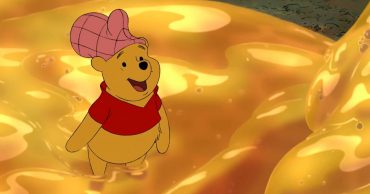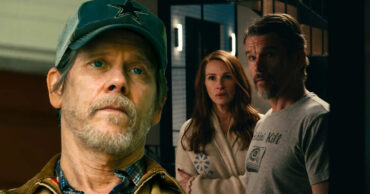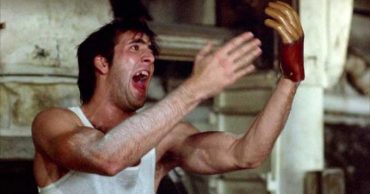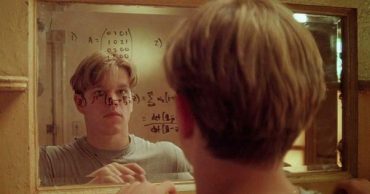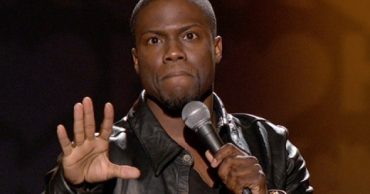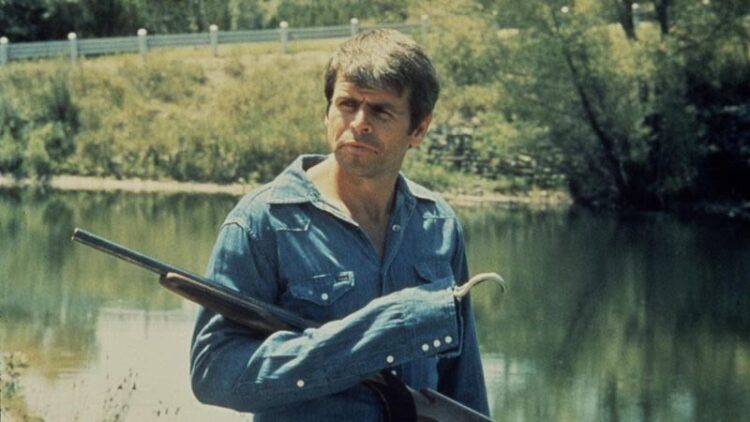
When someone asks you about revenge movies, you might think about John Wick or Kill Bill, but how many of you are actually aware of Rolling Thunder from 1977? I’m guessing not very many. At the time, this movie was heavily criticized for its violent ending, but what revenge movie doesn’t have that? Then again, this was when revenge movies were nearly as popular as they are today. The whole concept of revenge isn’t exactly a theme you would want to sink in on a positive level, but there is a deeper meaning to it than some audiences may realize.
When you watch Kill Bill, you can just boil it down to a badass femme fatale going after her former friends who left her for dead. There really is no underlying theme, just some bloody fun to watch. It’s really the same case for John Wick, except there’s a little more to it. Basically, don’t mess with a man’s dog. When you cherish your pets, they are far more to you than just pets. And yes, who doesn’t enjoy watching John Wick go on his gun-fu killing sprees? Nowadays, we tend to watch revenge movies for their action scenes, but Rolling Thunder is a lot more than just mindless action.
Just a fun little side fact, Rolling Thunder is actually one of Quentin Tarantino‘s favorite movies. Surprised much? Well, if you haven’t seen it, just go watch it and you’ll understand why very fast. One can safely assume that the man has used the film as heavy inspiration for many of his own films. What is Quentin Tarantino known for? Oh, just excessive violence and over-the-top action. But hey, that’s why we keep watching his movies. Admit it, most of you enjoy watching that crazy violence. Where do you think he got the inspiration from? From both Kill Bill movies (which considers to be one), to Django Unchained, to Inglorious Basterds, the theme of revenge is pretty common in his filmography.
Rolling Thunder touches on much more than just the textbook pursuit of mindless revenge. Let’s start with the main character of the movie. Rolling Thunder is about a Vietnam war veteran, U.S. Air Force Major Charles Rane, returning home in 1973 after spending seven years as a POW in Hanoi. One of his comrades, U.S. Army Master sergeant Johnny Vohden, played by a very young Tommy Lee Jones, shares his view of home, finding it difficult to adjust to civilian life. For the case of Charles Rane, he realizes that his son no longer remembers him and his wife has already been engaged to a police officer.
While attempting to rebuild his civilian life, everything he has left is completely shattered when four criminals torture him for his silver dollars. When he is unresponsive, they shove his right hand down a garbage disposal and when his wife and son come home, the criminals shoot all three of them. While Rane does survive, his wife and son do not and his hand is completely mangled. Sounds like your typical set-up for a revenge movie, doesn’t it? Maybe, but Charles Rane decides to pursue his own brand of justice in a particular manner. As soon as he’s discharged from the hospital, he saws down a double-barreled shotgun and sharpens his prosthetic hook on his right hand. Sounds like a more realistic version of the Punisher, doesn’t it?
Eventually, Charles Rane does complete his quest for revenge. And yes, we get to see young Tommy Lee Jones at his most badass. The very last action scene was a big shootout between the two war veterans and the criminals who murdered Rane’s family. It all took place in a brothel and ended with Rane and Vohden emerging in bloody victory. Not exactly the happy ending, but the men responsible for Rane’s misery were brutally killed. That is basically how every revenge movie ends, with the bad guys getting what they deserve. Rane and Vohden helped each other leave the brothel, both wounded and exhausted. Rolling Thunder ended there, but there was just so much to take from the ending alone.
I don’t think there enough movies that touch on the struggle war veterans face when they return home. For the case of Rolling Thunder, the war veterans we saw seemed emotionally detached from the home they left and came back to. It was implied that Rane wasn’t too far gone emotionally when he found companionship in a woman who helped him during his vengeful quest. Even for Vohden, his difficulty readjusting to civilian life prompted him to resign for another military tour because he didn’t know what else to do with his life. And when Rane approached him and asked for his assistance in killing the criminals, Vohden instantly agreed.
The fact that he stuck by his former comrade when he needed him speaks volumes. It shows that the themes of Rolling Thunder goes beyond revenge. Although these men were supposedly too far gone emotionally, they were still ultimately brothers in arms. By the end of the final action scene, they helped each other leave the brothel, despite their injuries. Rane was motivated by revenge and Vohden was probably motivated by a number of things. Perhaps he wanted to enact his own brand of justice or he just saw himself as a soldier forever. No matter how you look at it, we all saw two former soldiers fight for each other because one needed the other’s help. For Rane to see nothing by red, he still found a bit of solace in a former comrade.
That is what I took for the more positive themes of Rolling Thunder beyond its typical revenge story. Ultimately, it was a very intriguing revenge story that showed how veterans like Rane and Vohden struggled mentally and emotionally. Was this something that both men needed in order to find some kind of solace? It’s highly likely. And plus, how can you not say that hook is cool? If you haven’t seen Rolling Thunder, check it out. I think you’ll find it as one of the original revenge movies that the modern ones used as a foundation of the inspiration.
 Follow Us
Follow Us
